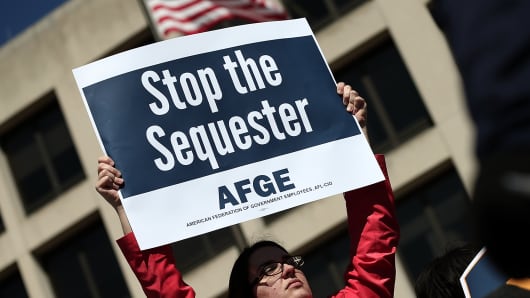Programs like Head Start, which provides health and educational services to low income children, are now in the midst of furloughing workers in states like Pennsylvania, Wyoming, Florida, and Missouri.
An estimated 70,000 Head Start slots across the country are being eliminated. A lottery in Columbus, Ind., last month determined which Head Start students would be able to stay in school for the summer— and which would have to go, because of lack of funds.
The Fort Peak Indian reservation in Montana is unable to hire special teachers in reading and writing, and summer school faces closing down completely. The reservation school system—where five children recently committed suicide in a single year, and 20 more made the attempt—cannot hire a second guidance counselor at the high school, leaving just one person to advise some 200 students.
Help for the jobless has been chopped as unemployment benefits are being curtailed in states like Pennsylvania and Utah—where a 12.8 percent reduction in emergency unemployment compensation has taken place.
Medicare patients have been reportedly turned away in Manchester, Conn., and other parts of the country as sequestration has cut payments to doctors for the government program. Some doctors have stopped chemotherapy treatment for patients as a result of the cuts.
"The cuts are spread out across the county and not in one spot so it's hard to see the full effect," Packer said.
Housing aid for many has also been cut— to some 140,000 low income families nationwide. Government vouchers have been stopped in cities like San Diego, where some 30,000 people were already on a waiting list to receive them. Only those currently getting vouchers—a total of 14,626 in San Diego of which 54 percent are elderly or disabled—can continue getting monthly payments of $845 to supplement their rent.
Cuts in career development programs, layoffs of teachers, reduction in overtime pay for custom agents are all in the current mix across the U.S.
"Many job training classes have been cut, and more will see cuts down the line," said Rachel Gragg, federal policy director for the National Skills Coalition, which seeks to better the skills of American workers.
"There are more than 160,000 people across the country waiting for adult education classes and now they won't get in," Gragg said.
National parks are also under the effects of sequestration. Many, like Fort Pulaski National Monument in Savannah, Ga., have already put a freeze on hiring the usual seasonal workers for the summer. And some vacant positions, like for maintenance, will not be filled at least this year.
Philadelphia's Independence Hall and the Liberty Bell exhibit have had their summer evening visitor hours cut. The Edgar Allan Poe house in the city, also part of the National Park System, is now open only three days out of the week, instead of five.
Yellowstone Park in Montana avoided a two-week delay for its summer opening only when local residents raised enough money—some $100,000—to clear the roads that would have been cleaned by furloughed workers.
Businesses small and large are feeling the impact. Conventions centers are reporting financial losses from the cancellation of government trade shows. (Read More: Delta Posts Small Profit, Says It's Feeling Sequester Cuts)
The General Services Administration Show, an annual training and networking event that provides education on government acquisition processes, was scheduled in May for the Orange County Convention Center in Orlando, Fla., but was canceled in February. Thousands of people were expected to attend, and the loss for the area is estimated at about $13.3 million.
Defense cuts are also part to the $85 billion that must go. For example, furloughs to federal civilian defense workers in southeastern Virginia—recently reduced from 22 to to 14 between now and September—have taken effect.
Some 5,000 sailors from the aircraft carrier Truman—also based in southeastern Virginia—were told they weren't going on a six- month deployment and lost pay for that time. (American uniformed personnel are exempt from pay cuts but not furloughs). Local officials say this is a big loss to their economy.
There are more defense cuts taking place. Arnold Air Force Base near Tullahoma, Tenn., cut 128 of 1,809 civilian jobs on April 19. There's a 20 percent pay cut and weekly furloughs for those remaining.
The Army garrison in Rock Island, Ill., has announced plans to fire 175 workers. Northrup Gruman information services in Lawton, Okla., has sent out 26 layoff notices.
So, people are feeling the sequester, but it may be that the impact on them is not making its way through the halls of Congress, said Mark Zupan, dean of the Simon School of Business at the University of Rochester.
"Their voice hasn't been sufficient enough to get Washington to the bargaining table," Zupan said. "It's very muted right now. Until everyone gets heard, I doubt anything will get done in Congress on reaching a budget settlement. Even then, I'm not sure a deal will be reached." (Read More: IRS Sets Some Closure Days Due to Budget Cuts)
And if a deal is reached, programs cut through the sequester will face similar perils in the future, said Packer.
"People think that when and if the sequester ends, money will be flowing back into these programs," he said. "That's not going to happen. Any agreement will likely keep many domestic cuts for the future. This is not a one-year thing. This is going to go on for a long time."



